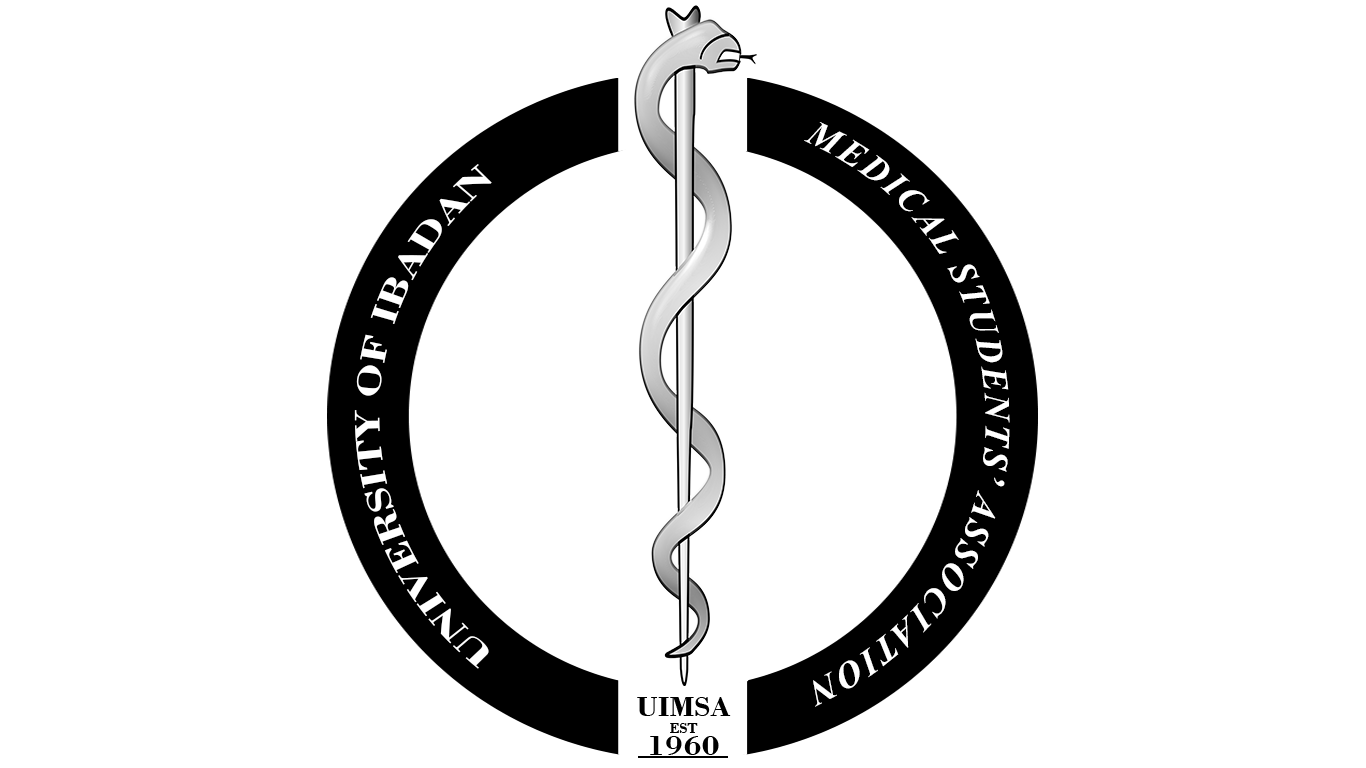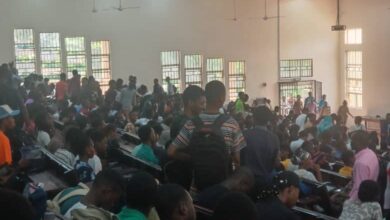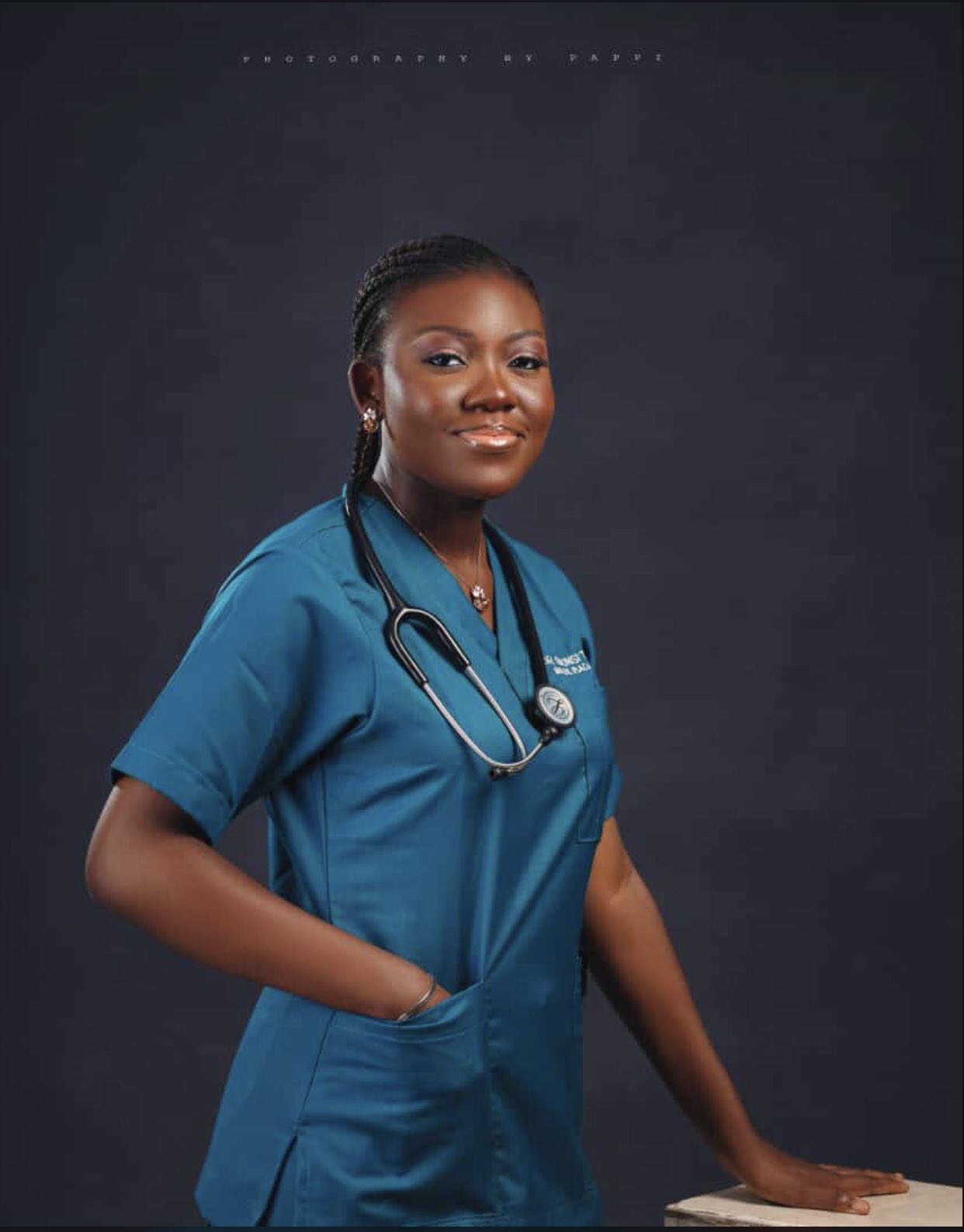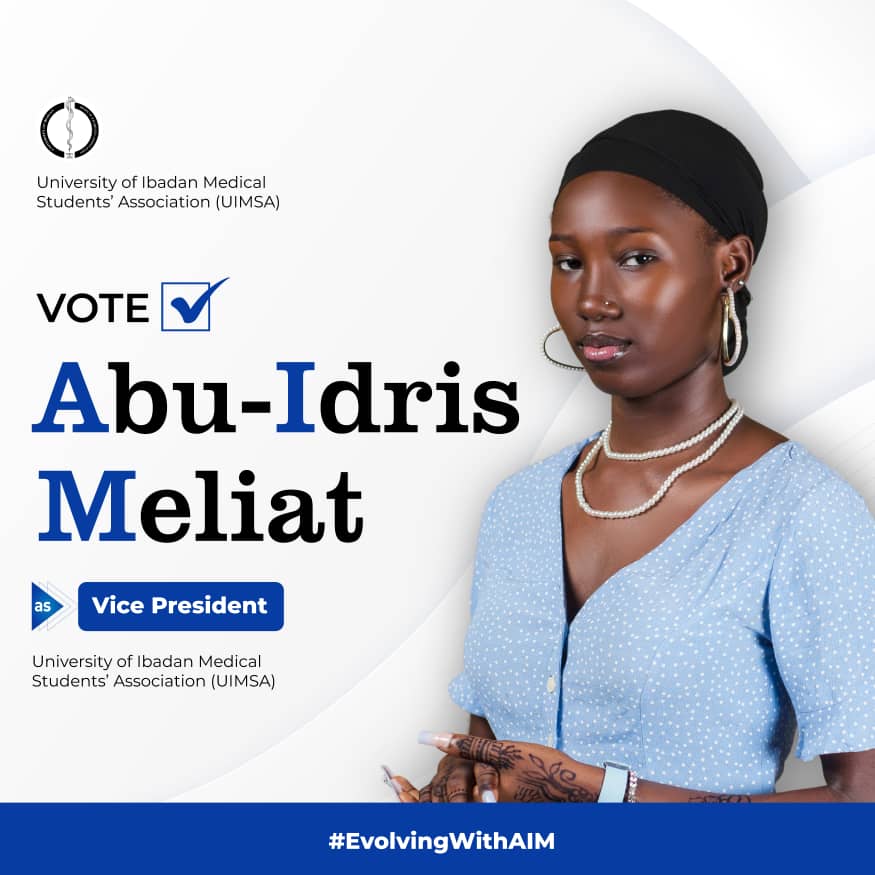Continuity, Constitution and Competition: Inioluwa Joshua on Mentorship Scheme, NiMSA, and More
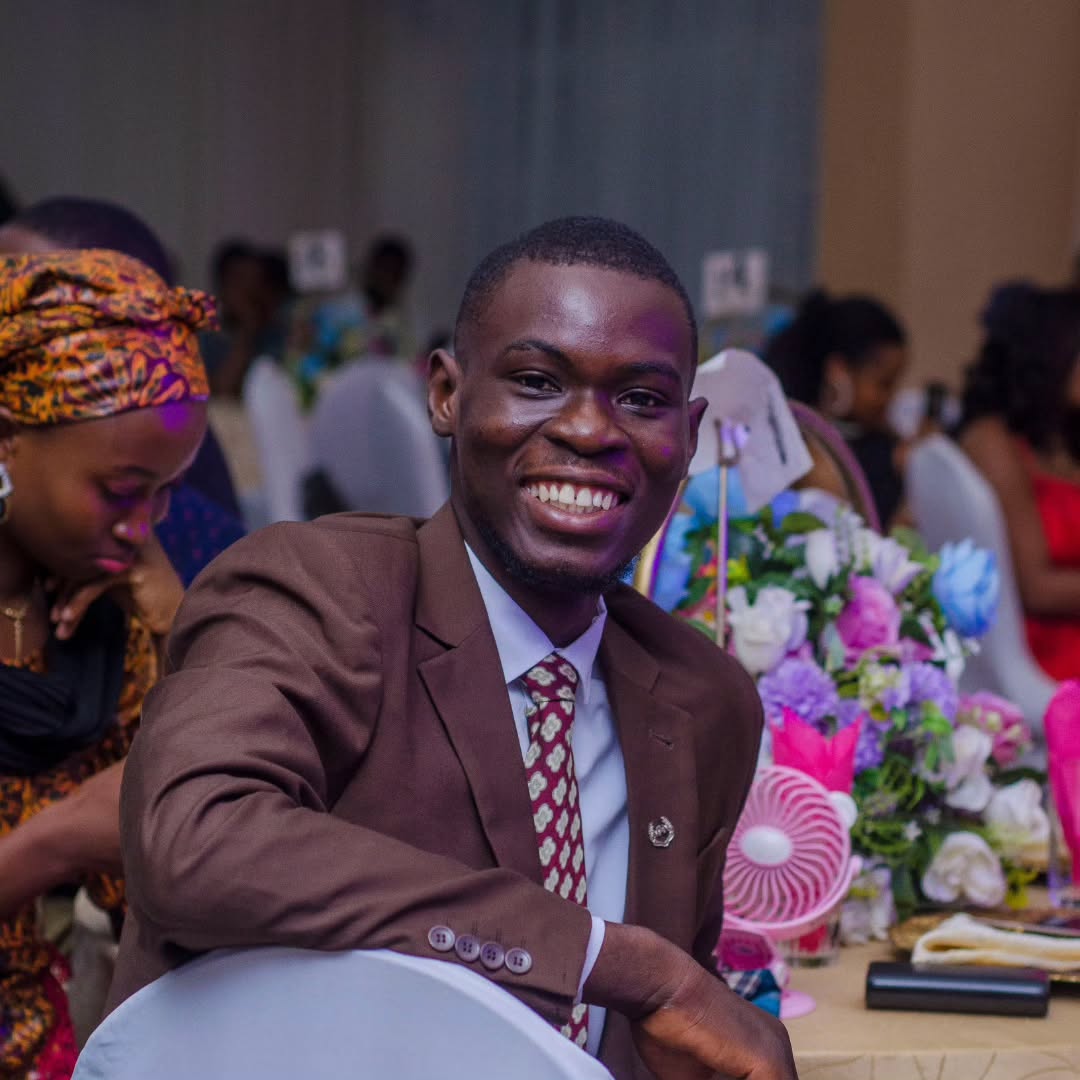
Following the release of the first part of our end-of-tenure interview with Inioluwa Joshua, immediate past President of the University of Ibadan Medical Students’ Association, we close things out with the second half of that conversation, reflecting on initial plans for the tenure and the final picture, as well as the relationship of UIMSA with external bodies.
In your manifesto, you pledged to dialogue with the college to restore elective postings to four weeks to, of course, allow for international travel and greater experience, so how did that process go?
Yeah, so it was actually very much quicker than we thought, and we didn’t even have to do much to be honest because the reduction of the elective to two weeks was because of the COVID strike, and so now that has been restored. So what I was working on and I’m handing over to the new administration is how to restore those relationships because usually UI students, that’s medical students, usually have opportunities to rotate at Northwestern University, Chicago and Uni of Chicago. So these were two schools in the US that had opportunities. And one of the problems was that it was now two weeks instead of four weeks. And those schools would never accept you rotating for less than four weeks. So now that it is back to four weeks, then the other process, we’ve made some progress already. Some students will be going from my class this year, very soon. But yeah, we have made some progress. And what we want to now do is we want to institutionalise it back. We want to restore it back. One of the problems that we faced was because those who were usually in charge of the electives, that is, the lecturers here, because you know it’s an exchange program, so they have lecturers here and they have lecturers there. So some of those people have retired. So when they retire, it now becomes harder to reach out to them to process that exchange. So that’s one of the problems that we had. Because some of the new emeritus professors are the ones who were even in charge of some of those elective programs. Hopefully, we’d now be able to restore the process.
Okay. Also, in addition, you had plans for a lecturer-student mentorship program in partnership with COMUI. Yeah. Was that successful?
Okay, so no, it wasn’t. Okay, I think some of the issues are the fact that college has its own idea of the mentorship scheme. So it doesn’t really fit into what they have because I know we spoke about it, and also we wrote letters to try to see if we can get permission, because the issue that the last tenure faced was that some lecturers said they were not going to participate if there was no clear directive from the college that they can go ahead with it. So that was a problem. But I was thinking that we would be able to get some sort of permission because I had a mentor from that last session, and it was a very, very fruitful relationship. I’m still very much in contact with you from that scheme. But since we did not get the approval of the college in time. And then also, one of the problems we also have is that there are a number of competing mentorship schemes that the college is also working on. For instance, IMSG-UK proposed a mentorship scheme, which they have not fully fleshed out yet. I mentioned that in my manifesto too because we also reached out to them and they said yes but you know sometimes working with organisations takes time because they have their own bureaucracies, they have their own objectives and goals so it doesn’t always fall within your own timeline for okay this is all we want to do or how you want to do it so that’s the issue that we faced but I’m hoping that it’s something that might be reconsidered in the future because not everybody has the natural tendency or ability to just walk up to people and say, oh, please, I want you to be my mentor. Even though that is how it should naturally be, but not everybody will be able to do that. I think it’s still a very good opportunity for those who cannot follow through the natural… with somebody. I think it can help them get mentors within the College of Medicine.
How do you describe the relationship of your tenure, of your administration with the College of Medicine, UI?
I think we had a very good working relationship, I wouldn’t lie, because we actually got a good amount of support from the college. I’m hoping it can be better, to be honest, because as students of COMUI, we deserve to get even more privileges, but I think that the current administration actually did very well. That’s under the able Leadership of Professor Temidayo Ogundiran. Okay, for instance, I’ll point out some very good things. For instance, during the MB2 exams of the 2K23 class, you know, that was the time when there was a change in accommodation. And many of them did not have places to stay, and they were just less than about a month and a half to their exams. And CARTA Hostel was provided for them free of charge. They stayed there for six weeks free of charge. And it’s, you know, it’s a private enterprise that is very expensive if they have to pay. So that’s one of the things that college did for us. Also, their support for our outing events like the NiMSA games, you know, getting permission, official permission from the school. Also subsidised transportation also to Lagos using college buses and also the overall support for welfare of students and they’ve also been very supportive of our welfare efforts, supportive of the endowment fund and also supportive of our attempts to raise funds because you know I reached out to the college before we started doing that public fundraising and everything so we got a very good degree of support and I would like to thank the Dean of Clinical Sciences, Professor T. A. Lawal, Dean of Basic Clinical Sciences, Professor Fehintola, who was also very instrumental in the 2k23 getting this accommodation, and also the Dean of Basic Medical Sciences, and also the Provost. So yeah, they were very, very helpful. And very importantly, Dr. G.O. Obajimi, also our staff advisor, who was also Sub-Dean until a few months into the tenure. So yeah, we got a very good deal of support.
Notwithstanding, do you feel there are areas where relationships with the college could be improved? Let’s say, for instance, a few years ago, there was this COM/CARD thing, and I think that was like 2022. I think that was a good initiative at the time. But nothing has been… it hasn’t been replicated since. And people said at the time that it wasn’t successful because, actually they just didn’t let us in on any kind of curriculum review process. And let’s say, even the MDCAN strike is another matter, but do you feel there are areas where there can be greater synergy between the college and UIMSA?
I think so. I agree. But I just want to correct a misconception. So COM/CARD was a committee that had a fixed objective, and that was to suggest ways to improve the curriculum. And they did a very great work. They even got a $500 grant in 2022, I think, with which they organised the COM/CARD symposium. And the reports of all the activities have been compiled. I have a copy of that, and we have sent it to the college management and so it’s to be used in the next curriculum review process, because you know curriculum review is not something that is done just once like that it’s a gradual process so yes the input has been submitted well you know eventually the decision still lies with college to decide what submissions to accept and those not to accept. I don’t think it’s right to say that we need another COM/CARD because COM/CARD has done what it was supposed to do, and it has fulfilled that objective with regard to curriculum suggestion. So I just hope that the college will… There was a meeting two months ago. We had some student representatives there who also spoke about the recommendations from the COM/CARD report. But like I said, the implementation still lies with the college. I also think, okay, the MDCAN strike. I feel that it was a grey line, to be honest. I also wish that maybe the college could have done a bit more in trying to help us see how we could have, you know, fast-tracked our resumption. Because four months was too long. I will not lie, it was too long to have spent at home. So I think that’s one thing that could have been done way, way better. I also think that student welfare too can also be improved. For instance, the two-hour generator supply was not really good, to be honest. There was a lot of back-and-forth dialogue, but I think that student welfare can still be kicked up a notch in the association. But with regards to interpersonal relations, with regards to being open to listening to students, I think they did a very good job.
In your tenure activities memo, you described extensively, measures taken to improve UIMSA’s representation within FAMSA and NiMSA. Regarding NiMSA, especially, of course, in light of recent schisms and controversies, how do you regard UIMSA’s future within the national body, and through what lens do you view current happenings?
Well, I think the current happenings are disappointing, but to anybody who has been a member of NiMSA for long enough, it would be easy to say that it was a long time coming. The NiMSA constitution is fraught with so many problems. For instance, the president is the sole interpreter, the highest interpreter of the constitution, and that’s a problem, because when you become your own judge, jury and executioner, then you know that something is going to happen eventually. So the abuse of power by the current NiMSA President, that’s Ahmadu Sardauna, was bound to happen eventually by somebody. It was just a matter of when, not if. So what I think is happening now is a period of turmoil. I think you might have seen the release today when NiMSA Southwest schools withdrew, recognising the new acting president, who is Ahmad Dauda. So, beyond the details, what I think I see this as is a period of turmoil, and I hope that we have this issue of the NiMSA constitution discussed and the proper framework is built. That’s going to be the foundation of creating a body for medical students nationally that would actually be a body for medical students nationally. And I think that UIMSA has a number of very great minds that can contribute to this process. Because of the ins and outs of NiMSA, a lot of times, you see UIMSAites are not very, very eager to participate in NiMSA. But I think that if a constitutional review is going to be undertaken, I think we have some very, very excellent people here who can contribute to that. The president is also coming to Southwest next year. I don’t really know if there are any UIMSAites who are interested at the moment, but I think it’s something that any interested UIMSAite can throw their hat in the ring for and see if they are qualified. They can put themselves up and see how we can sanitise NiMSA. So I hope that UIMSA plays a very important role in changing what NiMSA is today to something better.
Let’s say, concerning politics more generally, what is your opinion on the zoning of executive positions used between NIMSA and NMA, and a lot of medical associations?
I think the entire zoning conversation comes from the, how would I put it? It’s sort of copying what political parties in Nigeria do, in the sense that we’re trying to get people, get representation, equal representation from all the regions, sort of federal character principle or something like that. So I don’t really want to argue about the merits and demerits of the zoning process. What I just think is most important is that even from each zone, we definitely have qualified people, but what’s most important is that the constitution that underpins NiMSA becomes better. Because if there’s a constitution that is fraught with the problems that NiMSA’s constitution is fraught with, regardless of whether there is a zoning process or not, once the wrong person gets in there, there will be problems. But even if the wrong person gets in there, if there is a reasonable constitution, if there are due processes that are to be followed, and there is a sort of accountability mechanism, there will be a limit to the amount of chaos that can be caused in that kind of system. So, eventually, what’s most important now is getting good leadership for NiMSA and restructuring the charade that is the current NiMSA constitution.
Concerning your team of executives, what did you appreciate or dislike most?
I appreciate so many things. So many things. I think they are all wonderful people. It was not easy, to be honest. But it was heartwarming to see them give so much in the service of the UIMSAites. Because excos don’t really get the praises that they deserve. Because behind every successful public event, there’s so much private stress and work that has gone into it. So, yeah, obviously, as president, you have to do a lot of behind the scenes, please do this, you must do this, follow up you know, sometimes you can have to repeat something multiple times, please do this and that, so it can get challenging too but overall I think they have very great work ethic, they are all very wonderful people. They made my work easier to be honest, and they were also very, very passionate about serving UIMSAites because if you look at them, we did so many wonderful things this tenure that would not have been done if you do not have a team of people that are passionate about really giving their best to UIMSAites. So yes, I’d like to say a very big thank you to them for their sacrifice and their great service to UIMSAites.
So in that regard, you say there is nothing you dislike?
Ah, well, I don’t know. There will always be difficulties, but I don’t think the difficulties were significant enough for me to publicly say that, okay, this is what this person did, that person did. Obviously, there will definitely be times where you have to deal with conflict, where you have to, you know, maybe say, you have not done this well, do this again. Maybe even where you have to take disciplinary measures, right, but eventually, what’s most important is that everybody delivered in the service of UIMSAites.
What will you see led to the resignation of the AGS, Ogunnaike? And what went wrong with the replacement process?
Well, the resignation. According to her, she was burnt out during the course of the tenure. It’s understandable. Medical school is a lot. And combining medical school with extracurriculars might not work for everybody. And everybody has a different breaking point. So, yeah, I think at that point she couldn’t manage her duties as AGS alongside other commitments that she had, which is fine. So, I don’t think she’s the first person to resign from a position, whether in UIMSA or elsewhere. So, resignation is not so much of a big deal, as we often see it, maybe because in Africa, there’s always this: if you start something, you must finish it, which is why we have leaders in political posts who would be dying and still refuse to leave that place. I think, yeah, that’s what I’ll say about that. Well, the replacement process. So, I think we tried our best to look for who we’re willing to serve. Although it seems that there was now a pattern of people resigning. Even though it’s not really that the work is that stressful, but you know, there’s something about people saying that there’s a pattern. The AGS, two tenures ago, or the tenure before that, resigned, and now this one is resigning. Is there a problem, you know? And then just some speculations and all, and when there was nobody that was present, we were able to absorb some of her duties, because not all of her duties could be absorbed by other excos, but the major duties that were constitutional duties, the other excos absorbed them, so we were able to do very well, just fine without her
Over time, it has been a repeated pattern of sole contestants for executive positions or no contestants at all, and this trend has been compounded in the most recent UIMSA elections. What is your view on political apathy in UIMSA, especially as a former Zikite yourself and what steps you are taking to fix this apathy in your tenure, and how do you see that trend going forward?
Well, I think, yes, we can say that there is some problem of apathy, but I think as recently as two tenures ago we had contestants for the Office of President, we had two contestants for the Office of Presidents, and the year before that we also had two contestants, but the year before that there was only one person. I think the year before that, too, there was only one person. It waxes and wanes of sorts. That’s for just the president, but other positions too, yeah. So I think that what might be done is a bit more sensitisation. I think the problem might be that people think that being an exco is just all work and there’s really no benefit to it. Well, I don’t really think that’s true. I think serving as an on exco is a very, very good thing to do in the sense that you build yourself as a person, you get to build a lot of soft skills, you get to do a number of projects that build you as a person and also build your portfolio eventually. And also, connections with people on the outside. I think that’s one of the very good things that comes with being an exco, if you manage your position where you get to meet people outside, get to connect with people, both students and alumni. And those relationships can be very, very important for you. You also get to connect with school management. These people are also your teachers, right? So serving in that position makes them see you in an extra light of responsibility as capable individuals. So it’s also a plus to you if you’re serving in those positions. So I’d like to encourage people to please run for office next tenure. Yes, it’s not easy, but I think there are a number of very, very good benefits to being an exco. So what we did was we tried to bring in preclinical students to head committees. Even though we didn’t have those people, you know, become excos. But I think it’s something that’s a gradual process. I think there were seven positions that were filled. Okay, six. Six. Okay, there were six positions that were filled by election. I think last year was eight. This year was six. Yeah, so that’s why I say it waxes and wanes. So I hope that next year we have more contenders for the office. Yeah, that’s what I would say. It’s that conception of it’s a lot of work and there’s no benefit to it, but I don’t think that’s okay. And I think we have to disabuse people’s minds from that perception.
Yes, but of course, there are many reasons for medical students to be politically apathetic. Maybe like the long years of study, isolation from the main campus. But within UIMSA, it does seem to, because at the level of the Student Union, and at the level of NiMSA, it seems over time like there’s a real culture of apathy within UIMSA. But do you think this is a pattern that can change at all? Because let’s say, I want to use the word vibrancy. There’s no vibrancy within UIMSA, to be honest. But what’s… Where do we say that went wrong? Was it the same in your 100 Level? What‘s that?
Well, I don’t think, until Host and Covenant, I don’t think there were any medical students that I knew of that were running for office. And I think the last one was in 2012. I think that’s Edosa. So 2012 till 2025, that’s like 13 years. So if you look closely, but I think they should have been other medical students who also ran. I remember there was one. Is it 2016 or so? I know there was someone around for president. He didn’t win. I can’t remember his name now, but he didn’t win. So, but that’s the thing about history. History does not always remember those who attempted. History only remembers those who won, which is why now we cannot remember that maybe as recently as 2016 or so, though that’s not fairly recent, to be honest. But in 2016, we had somebody that ran for SU president who was from UIMSA. Yeah, I think you rightly pointed some things out. Staying in school for long, the academic workload itself too. It can also be very discouraging for people to now say you want to add other things. And there’s also the issue of people trying to seek out other extracurriculars to foot bills, to improve chances of you know, japaing and all those kinds of things. So it’s just like a number of competing priorities that so many people have. So I don’t really blame people, to be honest, but I think that being an exco is actually a very, very good thing. I’ve met a lot of former UIMSA excos and, to be honest, they are doing very well for themselves. Like, they are doing very, very well. So, I don’t think that being at an exco would mean that you should not do well in school. No, no, that doesn’t apply, to be honest. I think being at an exco is not an excuse for you not to do well in school. Actually, you should do very well as an exco because you are a leader, and people will look up to you. But so many factors get to influence this thing. But I think that moving on, given the fact that we just had the election of a UIMSAite as president, this coming on the heels of two years ago having a BDS student, who is also for all intents and purposes a medical student, becoming also SU president. And we also have the UISRC. I think we also forget that UISU is not only the executive, we also have the SRC. Omitee, that is Omitoye, is it Feranmi or so, I cant remeber his full name I think he was the 6th or 5th speaker of the SRC before… We also had Liam Omotunde, who was also the SRC speaker before becoming UIMSA Congress Chancellor. So you see that if you look at other positions besides SU Presidency, we have people who have served. Coming to NiMSA too, I think three years ago, we had, no that was two years ago, we had Akin-Ajani Oluwawapelumi as the SCOPE Director, Provisional Exchange in NiMSA. We also had somebody in 2k19 whose name I cannot remember, I think Yusuf something, he was the SCORA Research Director in NiMSA too. So yeah, and I think currently, Babatunde Dauda serves as NiMSA liaison to Students’ Unions too, under the current administration. So yeah, we still have people participating in these bodies. And that’s one of the reasons why, as much as possible, we try to support those LOs in UIMSA that are trying to execute projects, so that we can encourage them to step ahead into positions within NiMSA. But even the Deputy Speaker of the SRC is also a UIMSAite, the Chief Whip of the SRC is a UIMSAite. Last tenure, the former chief whip of the SRC was a UIMSAite. So I actually think that to be honest, we are actually doing fairly well because that’s all those positions now, I think that we’re the only College of Medicine Association that has people in all those positions. Yeah, we are doing well, and I think it can be better. But then, I always remember that personal preferences will play into these things, time and chance will play into these things, positioning will play into these things. But I think that it can always be better.
What do you say is your parting message to UIMSAites?
I think my parting words will be that it was a pleasure to serve UIMSA. There are a number of things that, when I look back on my undergraduate days, which will soon be over, by God’s grace, UIMSA is one of the very prominent highlights of my days in the University of Ibadan. I’m grateful for the opportunity to serve. I would like to encourage people, everyone, to explore beyond medicine. Find something that makes you tick. Do something extra. Don’t be solitary. Find a very good support system with people around you in your class. And I also think that serving as a UIMSA executive or a senator or a congressman is a very noble thing to do. You might think it’s something small, but I’ve walked into rooms and when I introduced myself as the UIMSA president, the vibe changes. It’s like, okay, we want to hear what you have to say. We’re interested in knowing who you are, right? So it may seem like you are not heading an MSA inside UCH. But look, when you step out there, when people see, when they hear, okay, this person, they are very likely to listen to you. So I would like to encourage people to run for office and, most importantly, make sure you do well in school. Thank you.

